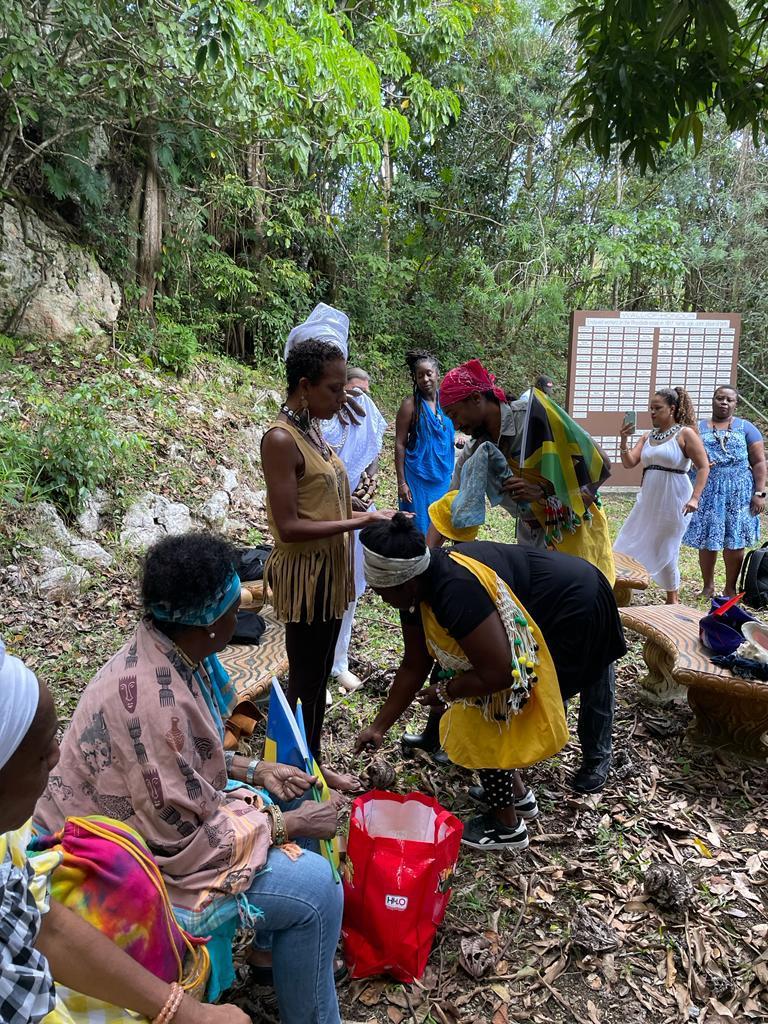
The UWI, Regional Headquarters, Jamaica. Friday, April 5, 2024— The School for Graduate Studies and Research at The University of the West Indies (The UWI) has launched an interdisciplinary network of researchers dedicated to better understanding and addressing the challenges faced by regional indigenous communities. The new research cluster for Indigenous Studies was launched on March 26, 2024.
Speaking on the need for the pioneering initiative, Pro Vice-Chancellor Graduate Studies Professor Aldrie Henry-Lee noted “The establishment of a One UWI research cluster is pivotal for several reasons. Indigenous communities, often marginalised, frequently find themselves excluded from research. This research cluster presents a unique opportunity to elevate Indigenous Peoples’ voices and perspectives.”
Spearheaded by the University’s Institute of Gender Studies and Development (IGDS), University Director, Professor Diana Fox stated that the formation of the research cluster on Indigenous Studies signals the amplification and expansion of The UWI’s history of collaboration with Caribbean Indigenous Peoples. This partnership has manifested through research, conferences, and advocacy. The cluster will continue these activities under an expansive ethical and inclusive framework highlighting the priorities of Indigenous Peoples and adopting decolonial, anti-colonial, and postcolonial lenses—among others.
Dr Gabrielle Hosein of the IGDS Unit based at St. Augustine Campus elaborated on the importance of ethics in research for and with Indigenous Peoples. She highlighted the significance of establishing ethical protocols for research among the communities. These protocols not only underscore The UWI’s commitment to accountability and decoloniality but also serve as a reflection of its dedication to building collaborative partnerships grounded in these values. The ethical protocols are being collaboratively developed by The UWI, the Caribbean Development Bank (CDB), and the Indigenous Peoples Advisory Group as well as Indigenous Peoples community researchers.
Kasikeíani (Chieftainess) Ronalda Pairman of the Yamaye Guani Taino Peoples voiced her support for the establishment of the research cluster. She praised UWI for prioritizing collaboration over intrusive research practices. She also noted her desire to see research positively impact Indigenous groups. Kasikeíani Ronalda also insisted that, like a current IGDS project with the CDB, The UWI should include Indigenous Peoples as co-researchers; they should not be required to have university degrees or formal certification but should be recognized as experts on their lived-experiences, and as knowledge-producers about their lifeways.
Kalaan Nibonrix Kaiman, a Chief from the Yukayeke Yamaye Guani (Jamaican Humming Bird Taíno People), also attended and expressed excitement about the opportunity to collaborate, share insights, brainstorm solutions, and incorporate community wisdom into research. Participants from various regional Indigenous groups joined, along with faculty members from the History and Archaeology, Linguistics, Rastafari Studies, and Anthropology departments.
The formation of this research cluster is part of the commitment of The UWI’s School for Graduate Studies and Research to enhancing research quality and quantity. The cluster is also expected to boost engagement with Indigenous Peoples across the region and signals the University’s efforts to centre Indigenous perspectives and knowledge in its research, teaching and learning.
The UWI Indigenous Studies Research Cluster Team can be contacted at diana.fox@uwimona.edu.jm or igdsrco@uwimona.edu.jm or gabrielle.hosein@sta.uwi.edu
END
About The University of the West Indies
The UWI has been and continues to be a pivotal force in every aspect of Caribbean development, residing at the center of all efforts to improve the well-being of people across the region for over 75 years.
From a university college of London in Jamaica with 33 medical students in 1948, The UWI is today an internationally respected, global university with nearly 50,000 students and five campuses: Mona in Jamaica, St. Augustine in Trinidad and Tobago, Cave Hill in Barbados, Five Islands in Antigua and Barbuda and its Global Campus, and global centres in partnership with universities in North America, Latin America, Asia, Africa, and Europe.
The UWI offers over 1000 certificate, diploma, undergraduate and postgraduate degree options in Culture, Creative and Performing Arts, Food and Agriculture, Engineering, Humanities and Education, Law, Medical Sciences, Science and Technology, Social Sciences, and Sport. As the Caribbean’s leading university, it possesses the largest pool of Caribbean intellect and expertise committed to confronting the critical issues of our region and the wider world.
The UWI has been consistently ranked among the best in the world by the most reputable ranking agency, Times Higher Education (THE). Since The UWI’s 2018 debut in THE’s rankings, it has performed well in multiple schemes—among them including World University Rankings, Golden Age University Rankings (between 50 and 80 years old), Latin America Rankings, and the Impact Rankings for its response to the world’s biggest concerns, outlined in the 17 United Nations Sustainable Development Goals (SDGs), including Good Health and Well-being; Gender Equality and Climate Action.
Learn more at www.uwi.edu






